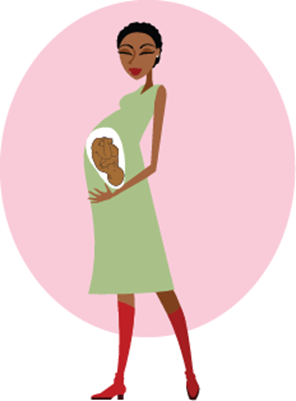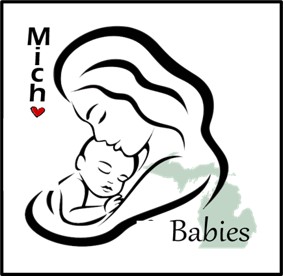Perinatal & Pediatric Epidemiology
-
Dr Danielle Gartner
 Faculty page
Faculty page
Equity in the ACA’s impact on Indigenous pregnant and birthing people
The goal of this work is to determine how to make federal health policy, such as the Patient Protection and Affordable Care Act (ACA), work equitably for Indigenous birthing people in what is currently called the United States. We’re undertaking this work because Indigenous pregnant and birthing people experience avoidably high rates of morbidity and mortality compared to their peers. An important risk factor for maternal mortality and morbidity is lack of access to affordable, continuous, culturally relevant, and high-quality health care from preconception through postpartum. Indigenous people often hold citizenship in sovereign Indigenous nations with whom the United States has agreements of fiduciary responsibility. However, healthcare delivery, access, use, and quality for Indigenous communities have been profoundly shaped by structural racism and colonialism, and their mutually reinforcing inequitable economic, residential, education, and employment systems. Moreover, interactions between federal health policy (in particular, the ACA) and local or Tribe-specific characteristics (e.g., rurality, healthcare delivery systems and capacity, cultural practices) create heterogenous health service contexts that uniquely impact access to and utilization of health care for Indigenous people. There is a substantial gap in knowledge of how federal health policies are enacted and experienced among Indigenous communities.
Nourishing Michigan Indigenous Children with Cultural Health & Equity (N-MICCHE)In recognition that food access, food sovereignty, health, and education are inextricably linked, N-MICCHE seeks to develop novel, culturally appropriate lessons, educational materials, and activities that will impact Indigenous children and families through Michigan’s Tribal Home Visiting and Head Start programs. This project builds upon over 15 years of relationships and existing work to promote the traditional food, kinship connections, and cultural practices that have supported Indigenous community, family, and child well-being for generations. To achieve our goals, we are working to implement a workplan grounded in Tribal-Participatory Research (TPR) and Community-Based Participatory Research (CBPR). The research team includes faculty, students, and staff at MSU, staff at InterTribal Council of Michigan, parents, food growers and sharers, knowledge keepers, and AmeriCorps VISTA members.
-
Dr Jean Kerver
 Prenatal Exposures and Child Health Outcomes: A Statewide Study
Prenatal Exposures and Child Health Outcomes: A Statewide Study
This project, joint with four other Michigan partners, is part of the national ECHO program (Environmental influences on Child Health Outcomes) to support studies of potential environmental causes of adverse pregnancy outcomes, obesity, asthma and neurodevelopmental disorders. We are creating a statewide study in Michigan, adding to our extant pregnancy cohorts. Women are interviewed during pregnancy; blood, urine, and placenta are collected and archived. We will later assess the child’s health and development in relation to factors assessed during pregnancy. This project is led by Dr. Nigel Paneth and Dr. Jean Kerver (contact PI) as departmental co-principal investigators. Other co-principal investigators include Dr. Charles Barone (HFH), Dr. Michael Elliott (UM), Chris Fussman (MDHHS), and Dr. Douglas Ruden (WSU).• Category: Perinatal/Pediatric; Developmental
• NIH-OD, UG3/UH3OD023285
• https://reporter.nih.gov/search/otkgY5O0k0SrOJU6nLFm3Q/project-details/10475778Microbiota and Allergic Asthma Precision Prevention (MAAP2)
The microbial community colonizing a newborn’s gastrointestinal (GI) tract is very important for the ongoing development of that community, which has a strong impact on the optimal development of the baby’s immune system, leading to better child and adult health and specifically the prevention of allergy and allergic asthma. This collection of projects will identify relationships between factors influencing a mother’s GI and vaginal microbes during pregnancy, and how these factors and the mother’s microbes affect her newborn’s GI microbial community and immune system development from birth through the first years of life in both human and mouse studies. Taken together, these advances in understanding have the potential to lay the foundation for a strategy for the primary prevention of allergies and asthma. This project is led by Dr. Johnson and Dr. Ownby at HFHS; Dr. Jean Kerver serves as a co-investigator, leading the diet assessment and nutritional components.
Mitigating the Impact of Implicit Bias on Maternal Morbidity and Mortality for African American Women
In the US, illness and death around the time of childbirth are much higher in African American women than white women, partly because of bias and racism experienced in the health care setting. In this study, we will ask questions and listen to answers about respectful health care practices from groups of African American mothers and their health care providers. The result will be the development of a toolkit of specific strategies for mothers to counter negative interactions and obtain patient centered, respectful care. This project is co-led by Dr. Jean Kerver and Dr. Gwendolyn Norman of Wayne State University.
PEAPOD-2 (Pregnancy EAting and POstpartum Development); (Grant Title: Food as Medicine for High-Risk Pregnant and Postpartum Women)
This project, led by Dr. Jean Kerver, will address the negative health impacts for two generations (Mom + Baby) that result from food insecurity, substance use disorder, or other challenges to eating healthy foods during and after pregnancy. High-risk pregnant women at Grand Traverse Women’s Clinic and primary caregivers of babies in the NICU at Munson Medical Center will receive weekly food pick-up or delivery for 12 weeks. Pre-post assessment of fruit and vegetable intake will be assessed in multiple ways including noninvasive skin carotenoid assessment with reflection spectroscopy and gut microbiome composition assessed from stool samples.
Understanding Breastfeeding Practices Before and During/After the COVID-19 Pandemic
Although many women intend to breastfeed, individual problems like overweight/obesity or public health problems including the COVID-19 pandemic may keep them from being able to reach their goals. This project will explore the impact of the COVID-19 pandemic on women’s breastfeeding practices and experiences. Dr. Gayle Shipp is a post-doctoral researcher leading this project with funding from a Diversity Supplement and a mentoring team led by Dr. Jean Kerver.
-
Dr Zhehui Luo
Causal inference using observational data
Many real-world interventions are not randomly assigned. Even in randomized controlled trials, intercurrent events may prevent valid inference of efficacy. Non-compliance and non-random drop-out may lead to selection bias and comprise the interval validity of a study. Dr. Zhehui Luo collaborates with epidemiologists, sociologists, clinicians and other scientists to find appropriate methods dealing with complications of causal inference using observational data. Currently she is exploring different impacts of non-compliance in placebo-controlled versus active-controlled trials and examining the potential of using spatial-temporal data to mimic randomized trials. The applications apply to trials for reproductive health and birth outcomes.
Health Services Research
Using large administrative claims data in research has advantages and disadvantages, which demands thorough understanding of the structure and limitations of such databases. Working closely with experts in generating, modifying and storing these data and utilizing her expertise in causal inference, Dr. Zhehui Luo provides insights in the design, analysis and interpretation of several program evaluation studies that have policy implications for improving population health. Currently she is investigating the impact of extending Medicaid benefit to persons affected by the Flint water crisis on health service utilization and implementing community health worker home visiting programs on birth outcomes. Dr. Zhehui Luo
-
Dr Claire Margerison
 Faculty page | Research page
Faculty page | Research pagePolicy Change and Women’s Health
Our research team is assessing the impact of the Affordable Care Act (ACA) on reproductive health behaviors, preconception preventive health, pregnancy health, and postpartum health. We are particularly interested in whether and how the ACA impacted racial/ethnic and socioeconomic disparities in women’s health. The project is led by Dr. Claire Margerison and funded by the Eunice Kennedy Shriver National Institute for Child Health and Human Development (R01095951, R01095951-02S1, and F31103404).
-
Dr Dawn Misra
Baltimore Preterm Birth Study (Grant Title: How Social Factors Influence the Risk of Preterm Delivery)
This was an NIH R01 study funded from 2000 through 2006. We collected data on 842 women, African-American Baltimore City residents seeking care either at a Johns Hopkins prenatal clinic or delivering at Johns Hopkins Hospital. Approximately half of the cohort was recruited prenatally and half recruited at delivery. A wide range of social and psychosocial factors were examined. The prenatally recruited cohort was also enrolled in collection of vaginal smear slides and limited saliva measures for cortisol assessment. Current residential address data was also collected. This design was intended to capture women receiving late or no prenatal care who would be missed by longitudinal (prenatal) designs. Consistent with the high-risk study population, our preterm birth rate was approximately 17 percent. We have published several manuscripts but there are still many excellent questions that remain to be examined with these data. Dr. Dawn Misra is the principal investigator.
o NICHD R01HD38098BBiosocial Impacts on Black Births (BIBB)
 BIBB is a prospective longitudinal study of Black women that focused on how social (at the individual and neighborhood levels) factors relate to risk of preterm birth. We recruited ~1,200 Black women in early to mid pregnancy with data collected at 2 to 3 prenatal time points (depending on entry into the study). Data include self administered questionnaires (social and behavioral factors, including life course measures), blood (to measure the lipidome and cytokines, with banked extra specimens), saliva (to measure telomere length), and medical record abstraction (maternal health, birth outcomes). For a subset of women, we have collected postpartum questionnaires to assess prenatal care quality and a few additional measures. We recruited women at prenatal care sites in metro areas of Detroit Michigan, Columbus Ohio, and Orlando Florida from 2018 through 2022 but blood was only collected prior to the pandemic. Dr. Dawn Misra is a co-investigator. MSU graduate students and postdoctoral fellows are conducting analyses and writing manuscripts.
BIBB is a prospective longitudinal study of Black women that focused on how social (at the individual and neighborhood levels) factors relate to risk of preterm birth. We recruited ~1,200 Black women in early to mid pregnancy with data collected at 2 to 3 prenatal time points (depending on entry into the study). Data include self administered questionnaires (social and behavioral factors, including life course measures), blood (to measure the lipidome and cytokines, with banked extra specimens), saliva (to measure telomere length), and medical record abstraction (maternal health, birth outcomes). For a subset of women, we have collected postpartum questionnaires to assess prenatal care quality and a few additional measures. We recruited women at prenatal care sites in metro areas of Detroit Michigan, Columbus Ohio, and Orlando Florida from 2018 through 2022 but blood was only collected prior to the pandemic. Dr. Dawn Misra is a co-investigator. MSU graduate students and postdoctoral fellows are conducting analyses and writing manuscripts.
Supplemental funding has been provided by NIH to further study: 1) maternal morbidity; 2) COVID-19.
o Perinatal/Pediatric
o NIMHD R01MD011575BIBB Epigenetic Aging, Social Factors, and Preterm Birth among Black Women
This is an active study (March 2023-November 2027). The goal of this study is to examine epigenetic aging as a marker of social stressors and a biomarker indicating risk of preterm birth among Black women. Our cohort is comprised of 550 Black pregnant women enrolled prior to the COVID-19 pandemic from the metropolitan Detroit, MI and Columbus, OH areas in the BIBB study. Women completed questionnaires and provided whole blood samples and saliva at 8-29 weeks gestation. Maternal medical records have been abstracted. The questionnaire data, biological samples and maternal medical records data are being used to complete the proposed study. We aim to: 1) Determine whether social stressors are associated with an accelerated rDNAm clock among Black pregnant women; 2) Determine whether women with PTB have an accelerated rDNAm clock compared with women with term birth; 3: Assess performance of the rDNAm associated with PTB relative to alternative metrics of epigenetic aging. Dr. Dawn Misra is a co-investigator.
o NIMHD R01 MD018293Contribution of maternal immune activation, viral infection and epigenetics to autism--a community-based case control study
This study (May 2023-April 2028) will evaluate pathways between viruses, inflammation, and epigenetics with autism spectrum disorders (ASD) based on an ASD case-control sample in a community-based population with universal access to archived placentas. While there is a contribution of heredity, a growing body of research suggests that ASD has origins in utero. Specifically, evidence is accumulating that prenatal inflammation is a critical exposure in the causal pathway of at least a subset of ASD. Notably, this exposure may operate through sex-dimorphic effects on the placenta on fetal brain development, consistent with the high ASD risk for males relative to females. In our community-based hospital population, unique due to mandated universal placental histopathology assessment and linkage to pediatric community care, pilot analyses identified a 3-to-7-fold increased risk of childhood ASD associated with prenatal exposure to acute and/or chronic inflammation. In addition, we identified 13-fold increased odds of ASD with placental villous maldevelopment. In this project, we will test pathways from these placental histopathology diagnoses to eventual ASD diagnosis. We begin with targeted formalin fixed paraffin embedded (FFPE) placental histopathology. We then employ detailed and quantitative immunophenotyping of placental-decidual tissue at the placental-maternal interface. We next assess newborn circulating levels of cytokines, chemokines and growth factors, alterations of which are known to impact neurodevelopmental processes key to the genesis of neuronal dysfunction manifested in ASD. We will examine epigenetic pathways by assessing DNA methylation in the placenta and its link to inflammation and PVM. Our analyses will test these as pathways from placental/decidual tissue markers of inflammation and/or placental villous maldevelopment to ASD diagnosis. Dr. Dawn Misra is a co-investigator.
-
- NICHD R01 HD109330
Fathers Matter
 The objective of Fathers Matter is to assess whether and how fathers may have an effect on successful birth outcomes using an integrated conceptual framework by Misra et al. that considers maternal as well as paternal social, psychological, and biomedical factors. This study complements the NIH R01 Biosocial Impacts on Black Births in that fathers of the babies (to be born) of pregnant Black women in that study were recruited for the proposed study. Using a prospective design, we aimed to enroll 400 mother-father dyads. Both fathers and mothers will be interviewed during the prenatal period and within the first week after birth. Both fathers and mothers will provide a saliva specimen to assess telomere length. Prenatal maternal questionnaire and biomarker data and birth outcomes from BIBB complemented data from this study. Thus, multiple sources of data will be available to provide a more comprehensive assessment of fathers as part of the social environment in which Black women experience pregnancies. Most fathers were recruited during the pregnancy and complete a prenatal or postpartum questionnaire as well as provided a saliva sample (telomere length). At the end of data collection (December 2022), we had enrolled about 230 fathers. Dr. Dawn Misra is the principal investigator. MSU graduate students and postdoctoral fellows are conducting analyses and writing manuscripts. BIBB/Fathers Matter Team
The objective of Fathers Matter is to assess whether and how fathers may have an effect on successful birth outcomes using an integrated conceptual framework by Misra et al. that considers maternal as well as paternal social, psychological, and biomedical factors. This study complements the NIH R01 Biosocial Impacts on Black Births in that fathers of the babies (to be born) of pregnant Black women in that study were recruited for the proposed study. Using a prospective design, we aimed to enroll 400 mother-father dyads. Both fathers and mothers will be interviewed during the prenatal period and within the first week after birth. Both fathers and mothers will provide a saliva specimen to assess telomere length. Prenatal maternal questionnaire and biomarker data and birth outcomes from BIBB complemented data from this study. Thus, multiple sources of data will be available to provide a more comprehensive assessment of fathers as part of the social environment in which Black women experience pregnancies. Most fathers were recruited during the pregnancy and complete a prenatal or postpartum questionnaire as well as provided a saliva sample (telomere length). At the end of data collection (December 2022), we had enrolled about 230 fathers. Dr. Dawn Misra is the principal investigator. MSU graduate students and postdoctoral fellows are conducting analyses and writing manuscripts. BIBB/Fathers Matter Team
o NINR R01 NR017626
GROW Study (Grant Title: Gestational Regulators of Weight)
Dr. Vinod Misra is the PI and Dr. Dawn Misra is a co-investigator. The research was undertaken at the University of Michigan where Dr. Misra used his K award coupled with a Doris Duke Clinical Foundation Award he obtained to examine how maternal overweight and obesity influenced pregnancy. This was a longitudinal study of pregnant women who presented for early prenatal care at the University of Michigan Health System. Women were enrolled between 6 and 10 weeks gestation. Women were eligible for inclusion if they were between 18 and 45 years of age, had a singleton pregnancy, and intended to deliver at the study hospital. Participants were seen for four additional study visits at 10-14, 16-20, 22-26, and 32-36 weeks gestation. At each of the five study visits, questionnaire data, anthropometric measurements (maternal weight and fetal ultrasound, including measures of maternal and fetal fat on half the sample), and biological samples were collected. Baseline maternal characteristics were obtained by questionnaire and medical record review. Data were collected, over two phases, on 286 pregnancies. The sample was well educated, relatively high income, and primarily of white ethnicity. However, there was heterogeneity with regard to weight with approximately half of the cohort classified as normal weight and half as overweight/obese. We have published several manuscripts with more in development. Again, the data set is very rich and there are many opportunities that remain.
o NICHD K08HD045609
LIFE Study (Grant Title: Impact of Racism on Risk of Preterm Birth in Black Women)
This is an NIH R01 study funded from 2008 through 2014. We collected data on 1410 African-American/Black women delivering at Providence Hospital in Southfield Michigan. Our preterm birth rate was approximately 15 percent. This grant collected information on a wide range of social and psychosocial factors as well as measures of women’s exposures and experiences over the life course. It included interviews with approximately half of the mothers of women in the study to better examine life course measures. Addresses, both current and childhood, have been geocoded. We have published several manuscripts. However, the data set is very rich and many opportunities remain.
o NICHD R01HD58510LIFE-2 Study (Grant Title: Looking Back to Look Forward: Social Environment Across the Life Course, Epigenetics, and Birth Outcomes in Black Families)
 This is an active NIH R01 study funded from September 30 2021 through 2026. We will collect data on 1,000 African-American/Black women delivering at Providence Hospital in Southfield Michigan. This award aims to investigate the social environment over the maternal life course to influences the maternal epigenetic profile (methylation and telomere length) from her own birth to the delivery of her offspring and the perinatal outcomes of the women’s offspring. It will also supplement the LIFE study conducted 2000-2006 by using many of the same measures and outcomes.
This is an active NIH R01 study funded from September 30 2021 through 2026. We will collect data on 1,000 African-American/Black women delivering at Providence Hospital in Southfield Michigan. This award aims to investigate the social environment over the maternal life course to influences the maternal epigenetic profile (methylation and telomere length) from her own birth to the delivery of her offspring and the perinatal outcomes of the women’s offspring. It will also supplement the LIFE study conducted 2000-2006 by using many of the same measures and outcomes. -
-
Dr NIcole Talge

Early Hearing Study
In the Early Hearing Study, we use click-evoked auditory brainstem responses (ABRs) to investigate how infants process sound early in life. Knowledge gained through this project may advance our understanding of brain development among children with and without neurodevelopmental disorders. This project is supported by a R21 award from the National Institute on Deafness & Communication Disorders to Nicole Talge. Our project manager is Melanie Adkins, MPH, and our collaborative team includes investigators from Michigan State University, the University of Michigan, UCLA, and the local community (Sparrow Health System; Hearing Health Center).
MichBabies Study

The MichBabies Study links administrative health records maintained by the Michigan Department of Health and Human Services to address questions with public health relevance for children and their families. This project is funded through R01 award to Nicole Talge from the National Institute on Deafness & Other Communication Disorders (NIDCD). Our project manager is Melanie Adkins, MPH and our collaborative team involves investigators from MDHHS, the MSU Institute for Health Policy, and the University of Michigan.


